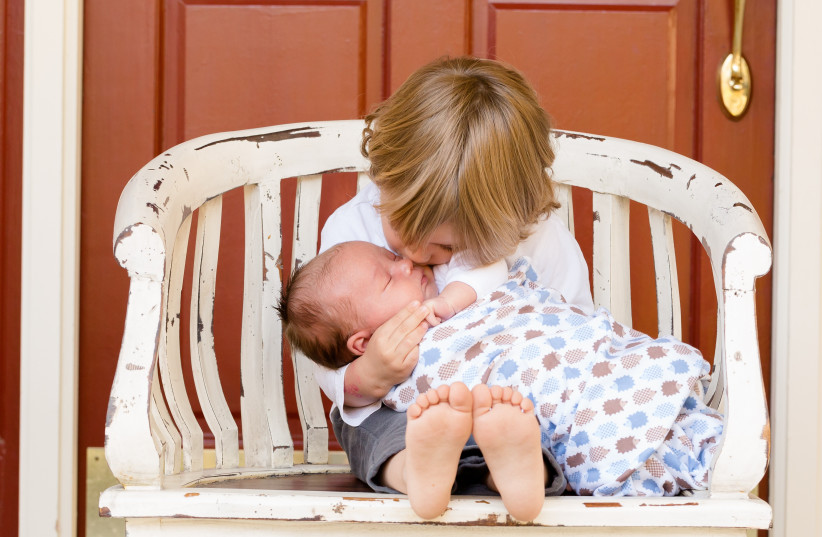You're tired after another sleepless night, loaded with hormones and your body still hurts from giving birth. You look at your oldest child, who seems to have suddenly changed since you brought home a new baby. Suddenly your oldest has outbursts of rage, cries a lot, is clingy, wants to suck on a pacifier, perhaps is wetting the bed, etc.
What happens to a child when a new sibling arrives? How can you understand and love your kids as each new baby arrives? Here are three important recommendations from Liat Azaria, a psychologist who counsels, guides and gives lectures for parents.
Be patient
Yes. patience. Tell yourself that this is a temporary period. Older children need time to adapt, to digest and to understand this very significant change in their lives. They need to know that they still have a firm place in your home and heart. Sometimes in the rush of caring for a new baby, it's hard to see that this is just temporary and will pass.
Maintain routines and house rules
Routines give kids a sense of a framework and something familiar. Certain things don’t change and serve to anchor them, and adherence to routine conveys a very reassuring message.

Set times for meals and bath time, along with bedtime rituals should continue in the same way, even if the home will be different when a newborn arrives. House rules will continue to be observed, and it's recommended to convey this message to your older children. If for example, you don't raise your voice in the house, this rule won't change after the birth of the new baby.
Talk about feelings
What message are children conveying when they throw a fit just as you sit down to breastfeed? What do they feel when you're changing the newborn's diaper? First of all, assume that all the feelings and needs of the older kids are legitimate and natural.
They're allowed to be jealous, and it makes sense to be angry when a new sibling enters the family, especially if there's one child who's about three years old and had always had all of the parental attention.
Talk to the children about how to allow the needs that they’re expressing through behavior to be met. For example, if your child is lying on the floor crying, say: "I see it's hard for you, I see you're angry that I'm now with... Do you want to sit on the couch next to me and I'll read you a story?".
It's important that kids hear that their feelings are legitimate, that you see and feel them, and do everything to make them feel good.
This article was written in cooperation with the JAMA parenting app.
